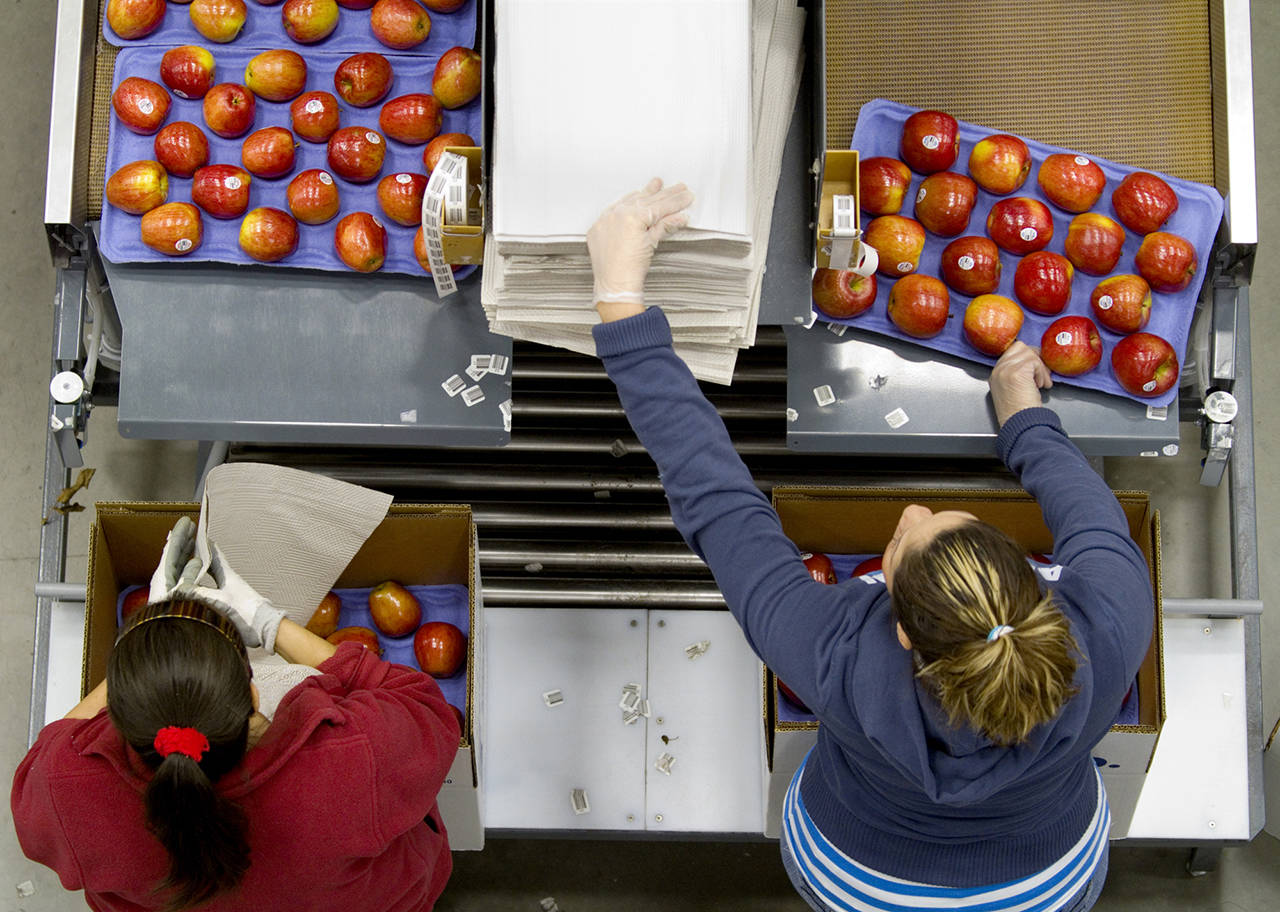By Thomas Clouse / The Spokesman-Review
Despite uncertainty about markets, the Washington apple crop is coming off the trees and producers are hopeful that talks with Mexico and Canada can wrap up soon to protect two of the most important export markets, a trade expert said Monday.
Jon DeVaney, president of the Washington State Tree Fruit Association, was the featured speaker Monday at the Spokane County Fair in an afternoon session on apples. It was sponsored by The Spokesman-Review, which is hosting a series of speakers as part of its ongoing “A Year in the Fields” project on Washington agriculture.
“Tree fruit is still a huge employment driver in our state,” DeVaney said. “During the peak, we have 140,000 people picking fruit. And 100,000 of those are seasonal workers.”
As the number of producers continues to decline, those who remain become more efficient. He explained that 100 years ago, farmers produced about 20 million, 40-pound boxes of apples. Last year, Washington farmers harvested some 134 million boxes with one-tenth the number of farmers.
“Agriculture is constantly becoming more efficient and more productive,” he said.
Since the statistics on income are always a year behind, because that’s how long many varieties of apples can be stored before they are sold, the most recent figures from 2016 show that apples from Washington generated $2.4 billion in sales, which is about 22 percent of all the dollars brought in by the state’s agriculture industry.
And local farmers have always relied on migrant workers to pick that fruit. During the early part of the last century, those workers tended to be out-of-work Americans, from Arkansas or Oklahoma for example. Now that labor force is mostly made up of Mexican nationals who legally come to the state part time to pick the fruit.
DeVaney said it’s imperative that government leaders work to tweak the current immigration rules and determine a long-term policy to protect that labor force.
“It’s important that we don’t go down an enforcement-only route,” he said. “We’d like to see something that provides a legal means … for people from abroad coming in to do that work.”
As the industry emerged, the Red Delicious apple became king because it stored well and was hearty enough to take rough handling. That meant it could be shipped long distances without damage.
“At the turn of the century, some two-thirds of all apples grown were Red Delicious or Golden Delicious,” DeVaney said. “But consumers made it known that they wanted more choices.”
He compared the changing tastes to what Starbucks did to the coffee industry.
“Every consumer gets to pick the flavor they want,” he said. “Apple consumers are doing the same thing. They want a variety of choices.”
One of the new popular varieties is the Honeycrisp, which was developed in Minnesota and grows better in cooler weather. But researchers at Washington State University have worked with producers to refine varieties to boost those traits that do well in Central Washington.
As an example of the changing tastes, DeVaney said Gala apples are poised to replace the Red Delicious this year as the most popular variety harvested in Washington.
“Red Delicious is still extremely popular in emerging markets because it handles so easily. Some 50 percent of our Red Delicious apples are sent overseas,” he said.
Since 30 percent of all the apples grown in the state are exported, the swirling trade uncertainties have created doubt in an industry that already must deal with changing weather patterns and rising labor costs.
Mexico is Washington’s No. 1 export market and last year India overtook Canada for No. 2, he said.
“We are very unsettled by the current trade situation,” DeVaney said. “A lot of the smaller growers have seen the brunt of the problems around trade. (The North American Free Trade Agreement) has been good for our industry. We’d like to see those disputes handled sooner rather than later.”
Talk to us
> Give us your news tips.
> Send us a letter to the editor.
> More Herald contact information.

























